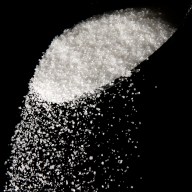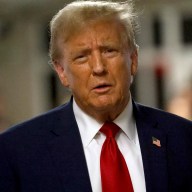NEW YORK – Prime Minister Stephen Harper visited the financial capital of the world Monday to capitalize on the goodwill from last week’s Barack Obama love-in and extol Canada’s virtues to an American audience notorious for ignoring its northern neighbours.
“Raising some base-level awareness about Canada is important,” Kory Teneycke, Harper’s communications director, said as his boss met with U.S. business leaders at the headquarters of information giant Thomson Reuters in mid-town Manhattan.
It was just the first of more such visits to come, said Teneycke, who characterized Harper’s foray to the Big Apple as the beginning of what he billed as the biggest-ever U.S. media blitz launched by a Canadian prime minister.
“There’s an appreciation that communicating to the American public right now, and more broadly to an international realm, is good.”
For the Canadian reporters tailing him across the city, however, Monday’s visit – which included stops at the United Nations and a handful of news organizations – yielded scant news as Harper focused instead on reaching out exclusively to U.S. media outlets.
To that end, the prime minister started his day bright and early with an interview on Fox News, where he reminded Americans of the value of the relationship between the two countries – even if one of them isn’t prone to blowing its own horn very much.
“The one thing we often suffer from is because we’re not a squeaky wheel, we often don’t get the grease and we’re forgotten,” Harper said.
“So it was great to have that kind of attention from our great friends in the United States.”
Harper added that in his discussions with Obama last Thursday in Ottawa, he reiterated the dangers of protectionism, warning that any attempt to rekindle “Buy American” sentiment in the U.S. could make a serious economic situation even worse.
“In my judgment, the biggest single risk we have in the world recession right now is protectionism,” he said. “Protectionism is the one thing that could turn a very deep recession into a very deep depression if we are not careful.”
Harper then made his way to the United Nations to discuss a litany of issues – climate change, the stabilization of Haiti, the situation in Afghanistan and global security were among the agenda items – in a brief sit-down with UN secretary general Ban Ki-moon.
The recent kidnappings of diplomats and journalists in some of the globe’s political hotspots were a top item of discussion, Teneycke said.
“This is a disturbing trend that seems to be continuing and it’s something that is a concern to Canada.”
Two Canadian diplomats, Robert Fowler and Louis Guay, are currently missing and reportedly being held by al-Qaida-affiliated extremists in Niger. Ottawa has refused to release any information on the case for fear of endangering their lives.
Teneycke said Harper’s primary goal in Manhattan was to emphasize to Americans the importance of the Canada-U.S. relationship. In addition to his appearance on Fox News, he was slated to visit CNBC and CNN later in the day to tape interviews that will air at a later date.
The prime minister hopes to drive home what Obama heard from him directly last week: that trade between Canada and the U.S. must remain free and open, and that any further move towards protectionism by Americans could spark a global economic disaster.
Ottawa was alarmed by the inclusion of “Buy American” provisions in the U.S. massive economic stimulus package passed last week by Congress, despite a caveat added to the bill by the Senate that requires Americans to obey their world trade obligations.
Teneycke said the government was pleased about the alteration of the provision, but wasn’t going to be complacent – Harper, he said, still intends to remind American power brokers about the grave dangers of protectionism in the weeks and months to come.
The U.S., in fact, would suffer under American protectionism more than any other country by closing itself off to crucial international markets, Teneycke said.
“It’s important we not see a retreat to protectionism … we’re looking for opportunities going forward to continue to communicate this message.”
In the Fox interview, Harper also made it clear that while Canada is looking forward to continued demand for oil from the U.S., it shares the American objective of reducing greenhouse gas emissions in order to mitigate the problem of climate change.
“Americans should be under no illusion: when I look at the energy needs of the United States, theres going to be lots of demand for all kinds of oil, particularly Canadian oil, which is a secure, safe supply from a reliable ally,” he said.
“That said, we are anxious to reduce our own greenhouse gas emissions. The fact that there is a government in Washington now that wants to see regulation over that problem is actually a reassurance to us, because we in Canada, for a decade, wanted to have some regulation on carbon emissions.”
















